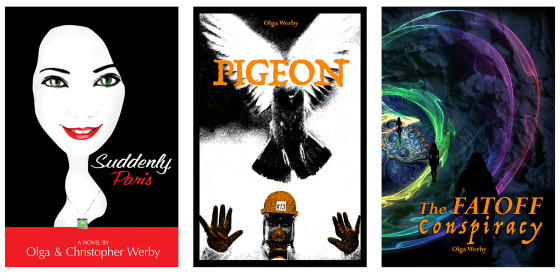
I wanted to be a scientist and go into space. I got my B.A. from Columbia University in Mathematics and Astrophysics and I worked at NASA on the Pioneer Venus Project as a programmer. I received my masters from U.C. Berkeley in Education of Math, Science, and Technology and went on to earn my doctorate in education. Together with my husband and business partner, I conceive, design, and create products, ideas, websites, and exhibits. Along the way, I’ve learned how to write. I’m also a binge reader — I find an author I like and I read everything they’ve ever written! I love science fiction. I have consumed voraciously thousands of books (some are neatly shelved in alphabetical order and some lie completely disorganized in piles on the stairs — my children now read science fiction too and it’s more difficult to keep things in place). I wrote my first story when I was about eight — I got hooked on a book series about an orphan boy who traveled the world with his uncle collecting animals for zoos. Unfortunately, only the first three books were translated into Russian. So I wrote what happened next (I didn’t have a choice,…
Read more →







